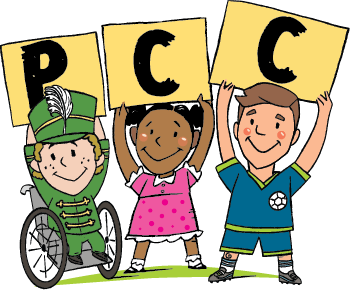Last week, there was a nasty cold going around your child’s elementary school. This week, the flu is circulating your baby’s daycare. You’ve already missed work once this week, and you don’t want to jeopardize your PTO for the upcoming holidays.
So, what do you do? You can’t control cold and flu season, but you can boost your kids’ immune systems. Here are 8 ways to increase the likelihood that your kids stay healthy over the next few months.
1. Maintain a healthy diet
Tis the season to eat all the festive food (read: junk)! It may seem like your child is coming home with Christmas cookies and holiday treats every single day. What should you do? Tell them absolutely no cookies? Let them eat to their heart’s desire because they’re only little once?
As always, the answer is somewhere in the middle. Your kids’ diet should be well-balanced with fruits, vegetables, whole grains, and lean proteins. These foods are packed with nutrients and essential vitamins that will keep their immune system strong. It’s worth noting that high sugar intake can suppress the immune system and make the body more susceptible to illnesses.
However, simultaneously, there’s no guarantee that eating a perfect diet will protect your child from the flu going around school. Do your best to serve balanced meals and mix in a few treats here and there. Everything in moderation.
2. Prioritize sleep
Quality sleep is critical for immune function as well as overall health. Here is a quick chart detailing how much sleep kids should get by age:
- Infant (4 to 12 months): 12 to 16 hours, including naps
- Toddlers (1 to 2 years): 11 to 14 hours, including naps
- Preschool (3 to 5 years): 10 to 13 hours, including naps
- School-age (6 to 13 years): 9 to 12 hours
If you’re looking at the chart above and thinking, “My kid has never slept that much in their life,” talk to your doctor. Sleep is a tricky subject for parents, and recommendations don’t always match reality.
That said, the evidence is clear that sleep impacts overall health, so if you want to keep your kid healthy, it’s important to prioritize a good sleep routine.
We recommend establishing a consistent bedtime routine. A sample routine could include having a nutritious snack (such as a banana), bathing your child, going to the bathroom or putting on a fresh diaper, brushing teeth, reading a book, singing a song together, and cuddling and talking about their day.
3. Stay active
Encourage your little ones to stay active. Regular exercise helps keep the body healthy by improving brain health, managing weight, reducing the risk of disease, strengthening the muscles, and getting the immune cells moving.
After your child exercises, they’ll have a lasting presence of immune cells for up to three hours after exercise is complete. However, that doesn’t mean you have to take them to a formal sports practice or out for a run. Exercise can be as simple as dancing around the living room, playing in the backyard, or sledding outside. If you’ve gotten to the end of the night without getting outside, consider taking a family walk after dinner. Your littles can walk, run, or ride their bikes around the neighborhood to get their energy out.
4. Teach proper hygiene practices
When it comes to boosting your child’s immune system, you also must consider how to avoid unnecessary germs as well. That’s where hygiene practices come in. You can introduce these practices early — consider even 9 to 12 months — so your child is well-acquainted with them by the time they need to be doing them independently.
What practices should you focus on teaching?
Regular handwashing
Handwashing is a lifelong healthy habit. Here are the five steps you should teach: wet, lather, scrub, rinse, and dry. Your child should know to wash their hands at key times such as after using the bathroom, before eating, or after blowing their nose.
The step by step of handwashing includes:
- Wet your hands with clean, running water (warm or cold)
- Turn off the tap and apply soap, allowing it to lather by rubbing your hands together
- Scrub your hands for at least 20 seconds, including underneath your nails, in between your fingers, etc.
- Rinse your hands well under clean, running water
- Dry your hands using a clean towel or air dryer
While hand sanitizer can quickly get rid of germs if soap and water are not readily available, it is not a perfect alternative. You should always use soap and water if available.
Covering their nose and mouth
When your child coughs or sneezes, teach them to do so into their elbow. This is proper respiratory etiquette, and it helps prevent the spread of disease. If you cough or sneeze into your hands, you risk spreading germs to whoever or whatever you touch thereafter. You wouldn’t want someone sneezing or coughing all over you — so don’t do it all over someone else!
Practice this with your child a few times before they sneeze or cough. You can even employ a few of their favorite stuffed animals. Lift the stuffed toy’s arm to their mouth and show your child how to properly cover it. It may take them a few times to get it, but afterward, they’ll be better equipped to ward off germs.
5. Manage stress
Did you know that chronic stress can weaken the immune system? Many adults mistakenly believe that kids can’t experience stress — this isn’t true! It’s important to recognize that children have anxieties, and it is your job as their parent to help them learn to cope and manage through them. One method you can use is doing activities they enjoy like spending time outdoors, reading, or drawing. If you believe your child has persistent anxiety, don’t be afraid to mention it to your doctor.
6. Update their vaccinations
Consult your pediatrician about the vaccinations your child needs. Both the flu and COVID-19 vaccines can help to prevent respiratory illnesses that worsen during the winter months. Though these shots don’t protect against all viruses, they can prevent specific illnesses and their complications.
7. Give supplements when recommended
Before giving your child supplements, you should always check with your pediatrician. Not every child requires supplements to stay healthy. However, if you notice that your child tends to have recurring ear infections or can’t stave off a cold or cough for more than a week or two, check to see if a supplement could help.
Common supplements your doctor may recommend include vitamin D or probiotics. During the year, most children absorb vitamin D through sunlight. In the winter months, sunlight exposure is limited, either due to increased cloud cover or decreased time outside because of lower temperatures. You can naturally boost vitamin D in your child’s diet by serving fortified dairy products, fatty fish, and egg yolks. Most doctors will recommend this as a first step before a supplement.
Similarly, probiotics help to promote a healthy balance of gut bacteria, which plays a role in immune function. Though probiotics do come in a supplement form, you can try a change in diet as a first step. Foods like yogurt or kefir are a stellar source of probiotics.
8. Keep them hydrated
To perhaps no one’s surprise, drinking more water is one of the cure-alls for boosting your immune system. Hydration supports all bodily functions, and you need water to transport fluid and nutrients as well as communicate signals to organs. So, keep your kids hydrated if you want to keep them out of the doctor’s office!
Final Thoughts
Are you concerned about the upcoming cold and flu season? Do you want a reliable pediatrician on your healthcare team? Jacksonville Pediatric Care Centers provide care. Dr. Benitez and his team of Jacksonville pediatricians work around the clock to provide exceptional pediatric care.










